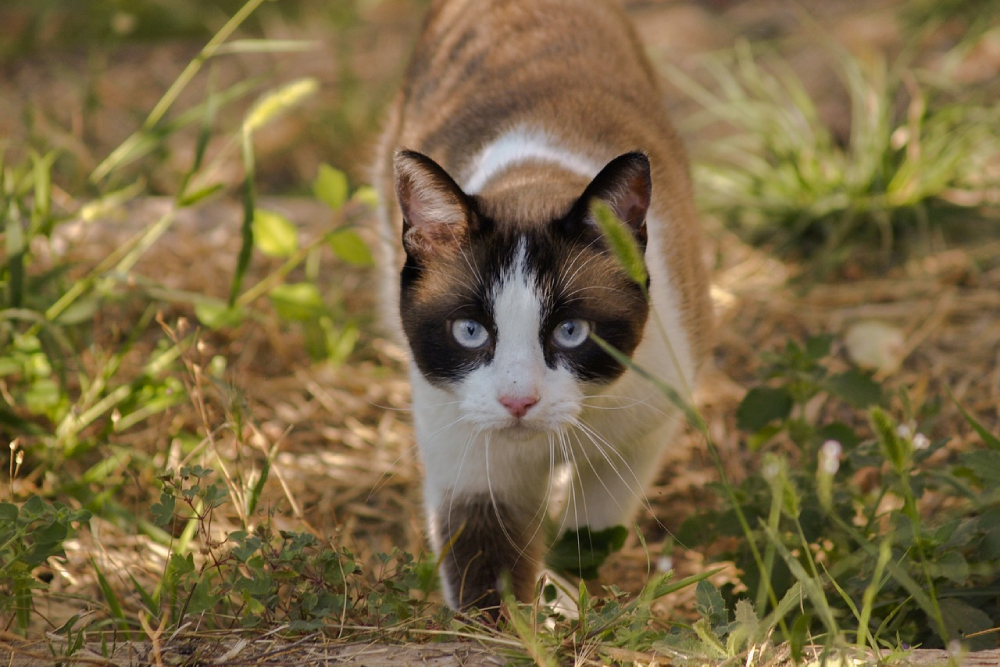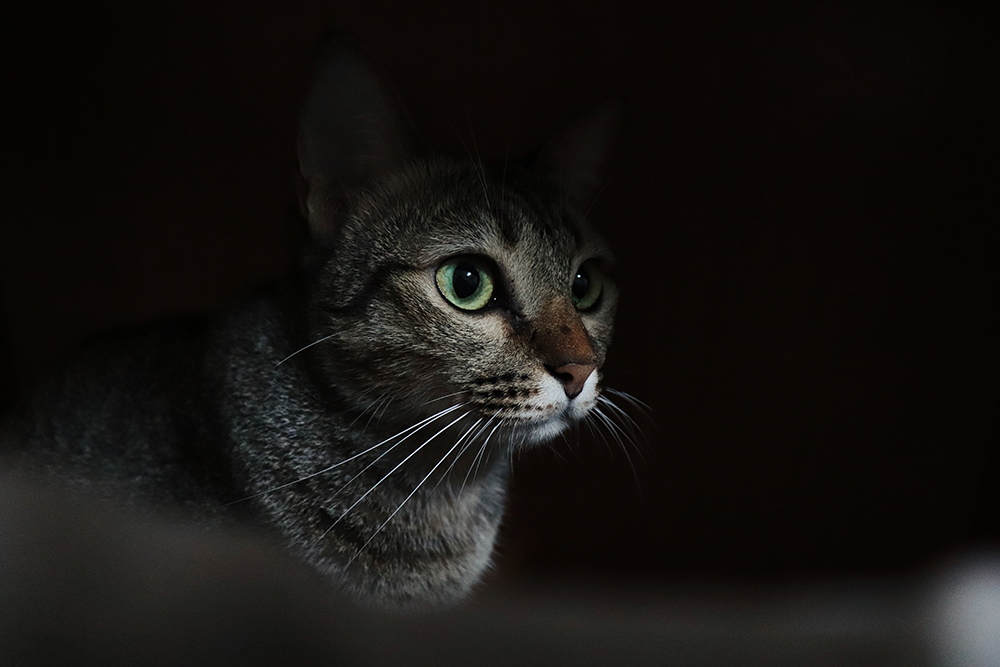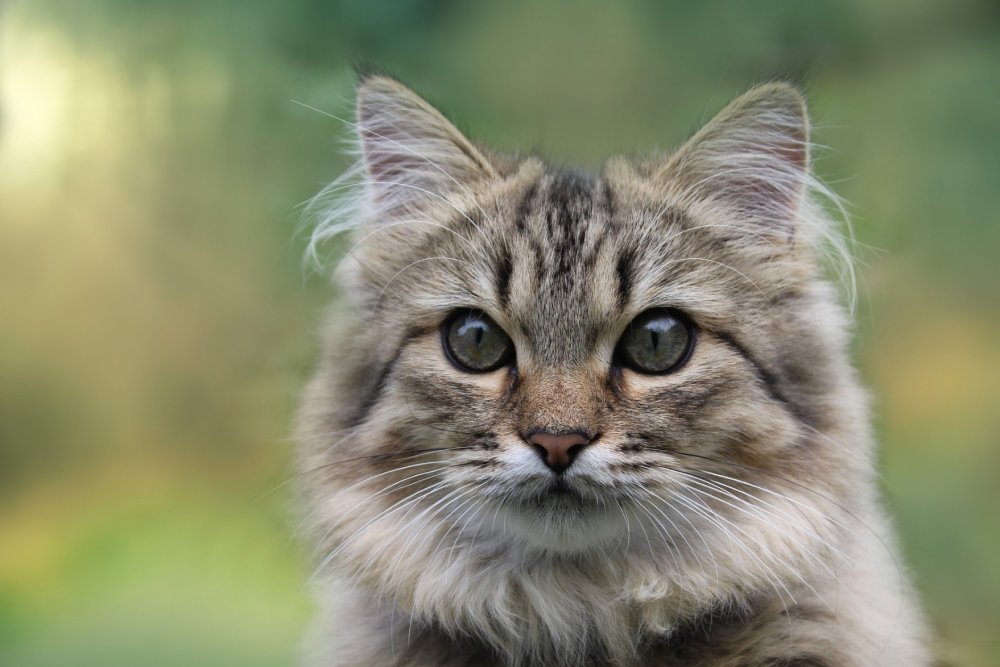Click to Skip Ahead
While fleas are tiny parasites, a flea infestation can quickly wreak havoc and take over your entire home. If you do a quick online search, you can find many natural home remedies that claim to be effective in getting rid of fleas, including coconut oil. But does coconut oil kill fleas? The truth is coconut oil isn’t proven to kill fleas and is ineffective in eliminating an infestation. However, it may be useful as a flea repellant.
Before you start lathering your cat with it, here’s what you need to know about coconut oil for fleas.
Coconut Oil for Fleas
Coconut oil may be effective in repelling fleas because it contains lauric acid, which can repel certain pests.1 Coconut oil also makes it difficult for fleas to bite into the skin and feed on blood, and it may slow down the growth of smaller cases of flea infestations.
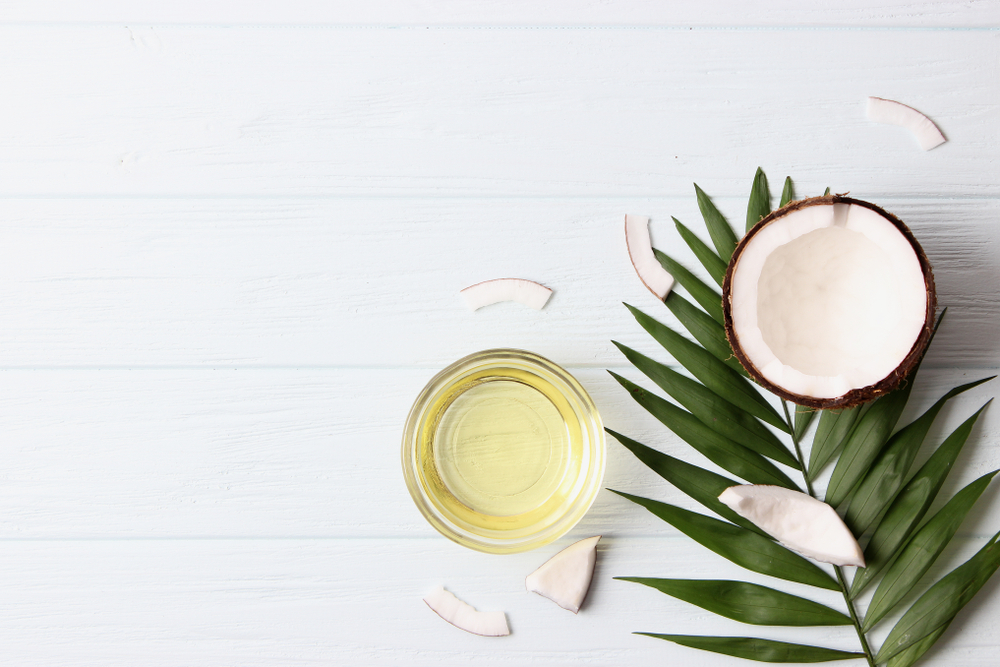
How to Use Coconut Oil on Your Cat
If your cat has a minor case of fleas, applying coconut oil to their skin and coat may help with the issue. However, any number of fleas is considered a problem and not something you should take lightly or expect coconut oil to kill fleas for you. Having your cat examined by your vet is important whenever you notice fleas on your cat.
Make sure to use high-quality, unrefined virgin coconut oil, as this type of coconut oil contains the most concentrated levels of lauric acid and other nutrients. Just take a small amount and thoroughly massage it into your cat’s coat and make sure it makes contact with the skin.
Some cats may enjoy the taste of coconut oil. While coconut oil is safe for them to eat and a small lick is likely harmless, you shouldn’t apply coconut oil on your cat if they enjoy licking it. Coconut oil is very calorie-dense, and repeated consumption may result in an overweight cat. In addition, ingesting coconut oil may lead to a case of digestive upset for your kitty. Furthermore, your cat’s licking would make coconut oil ineffective for its intended purpose of repelling fleas. Therefore, it is advised to put a shirt, sweater, or an e-collar on your cat to prevent them from licking up the coconut oil.
Important Note: Cats are natural groomers, and some individuals may not appreciate oils applied to their body. If your cat obsesses over licking off coconut oil, then you should consult your vet for other alternatives for your cat’s flea woes.

If you need to speak with a vet but can’t get to one, head over to PangoVet. It’s an online service where you can talk to a vet online and get the personalized advice you need for your pet — all at an affordable price!
Coconut oil can also act as a natural moisturizer that can prevent your cat’s skin from getting too dry. It may also help repel fleas and prevent the infestation from becoming more significant.

How to Treat a Cat With Fleas
Treating flea infestations in cats is tricky and requires a veterinarian’s input. Your vet will thoroughly examine your cat to ascertain the extent of the infestation and check for other health issues, and then they will formulate a treatment and prevention plan for your cat. They may administer topical or oral medication and prescribe other treatments (such as medicated shampoos or sprays) as needed. Your vet will advise you on at-home remedies you may use for your cat while they recover from their problem. These may include baths with a medicated shampoo or grooming sessions with a flea comb.
If you have multiple pets in your house, have them all examined by your vet if you notice fleas on any one of them.
Eradication of fleas around your house involves following your veterinarian’s treatment and grooming recommendations alongside a thorough disinfection of your home using an appropriate cleaner.
Fleas are often more concentrated in areas your cat frequently visits, their litter boxes, and around couches, rugs, carpets, curtains, and upholstery. These areas often provide fleas with ideal cover, humidity, and access for hosts to jump onto and feed. Focusing on these areas around your house is a crucial step toward controlling a flea infestation.
Flea eggs and larvae in the environment can be killed by a 1:32 (3%) dilution of a bleach product. However, these products aren’t pet or children-safe and caution alongside proper PPE (personal protective equipment) must be worn when using these products. Professional cleaning or the services of a pest controller are also recommended. Never apply a bleach product directly on your cat.
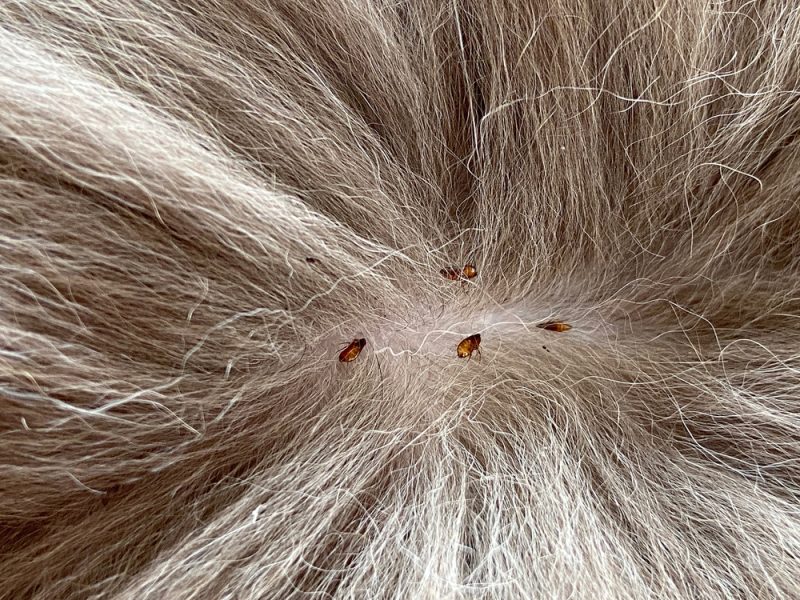
A Note About Roaming Cats
Controlling fleas on your cat will be much for difficult if they’re allowed to roam outdoors, as they may easily get reinfected by fleas whenever they roam outside. Most veterinarians advise against letting domestic cats roam outdoors. Domesticated cats have been implicated as a major factor in the decline of many bird, lizard, and small animal populations in many urban and rural settings. In addition, letting your cats outdoors is dangerous for them, as they may get injured, ingest poisons (for example, rodenticides), be predated by larger animals, go missing, or contract a disease or illness.
Conclusion
Overall, coconut oil can be effective in helping control a minor case of fleas and can be used as a preventative measure for repelling fleas. However, when it comes to moderate to severe flea infestations, it’s going to take more than just coconut oil to kill fleas in your home. Make sure to work with your veterinarian to treat fleas on your cat. It’s much better to contact your veterinarian sooner rather than later to prevent flea infestations from growing rapidly out of control.
You Might Also Be Interested In:
- Does Lysol Kill Fleas on Cats? Effectiveness & Safety Explored
- Does Chlorine Safely Kill Fleas on Cats? Vet Approved Guide & Advice
Featured Image Credit: Thasneem, Shutterstock




